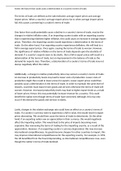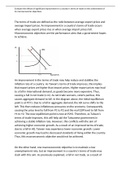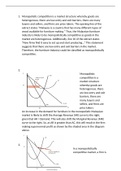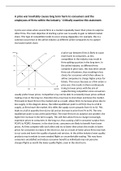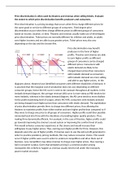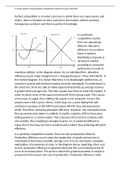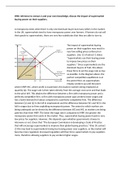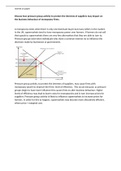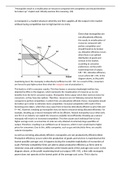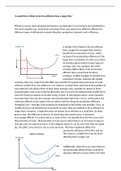PEARSON (PEARSON) • Economics 2008
Latest uploads for Economics 2008 at PEARSON (PEARSON). Looking for Economics 2008 notes at PEARSON (PEARSON)? We have lots of notes, study guides and revision notes available for Economics 2008 at PEARSON (PEARSON).
-
47
- 0
-
2
Modules Economics 2008 at PEARSON (PEARSON)
Notes available for the following courses of Economics 2008 at PEARSON (PEARSON)
Latest notes & summaries PEARSON (PEARSON) • Economics 2008
This essay critically examines the factors that could cause a deterioration in a country's terms of trade using chains of analysis and evaluation points. Points include relative inflation rates, relative productivity and relative exchange rates.
This essay uses chains of analysis and evaluation to examine the effects of significant improvement in a country's terms of trade on the achievement of its macroeconomic objectives. A judgement is also made deciding the overall impact.
This essay uses chains of analysis and evaluation points to examine the types of efficiencies that a monopolistically competitive market structure firm may or may not possess.
This essay critically examines the statement "A price war inevitably causes long term harm to consumers and the employees of firms within the industry," using chains of analysis and evaluation to determine a judgement.
This essay examines 3 points fully using chains of analysis and evaluation to discuss the extent to which price discrimination benefits producers and consumers, depending on their elasticity of demand.
This essay includes points using chains of analysis and evaluation to examine the extent to which a perfectly competitive firm is allocatively efficient, productively efficient and x efficient.
This essay uses chains of analysis and evaluation to discuss the impact of the UK supermarket buying power on their suppliers.
This summary explains how pressure groups affect the supermarkets in the UK to become more efficient.
This essay includes 3 fully developed points using chains of analysis and evaluation to examines the statement "Monopolies result in a misallocation of resources compares with perfect competition and should therefore be broken up.
This essay includes 3 points evaluating the statement "A small firm is likely to be less efficient than a large firm". Mainly discussing the 3 types of efficiencies, allocative, productive and dynamic. A judgement is included as well.

